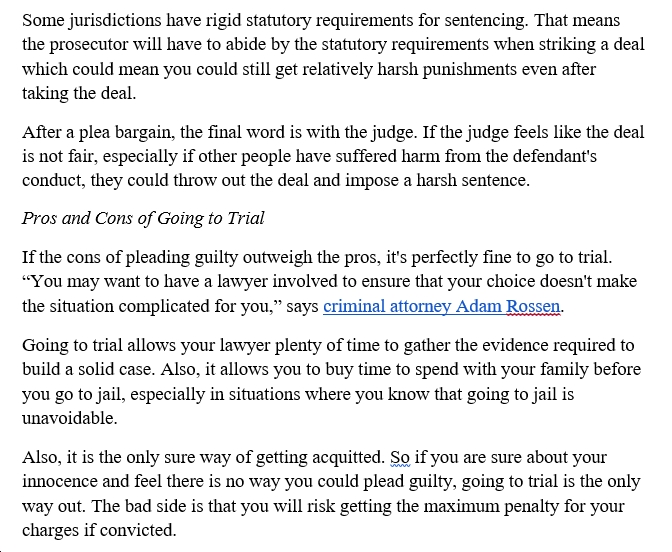SPONSORED CONTENT
Criminal Law Basics
Many mistakenly assume that a criminal charge only comes to people asking for it. But the reality is no one is immune to a criminal charge which makes having a basic understanding of the basics of criminal law important.
A crime is any act or lack of action that violates a law punishable by the state or federal government. A crime is usually a behavior harmful to another person but includes conduct considered harmful to society.
It Includes Actions and Inactions
All crimes fall into two broad categories: crimes of commission and crimes of omission. A crime of commission occurs when a person takes an active role in committing an illegal act. On the other hand, a crime of omission involves the failure to do something that is required by law.
Crimes of commission include murder, theft, fraud, and other offenses. Conversely, crimes of omission include failure to report a crime, pay taxes, provide necessary care to a dependent, pay child support, and fail to comply with regulations, among others.
Elements of a Crime
Crimes are defined by state and federal laws and created by the government’s legislative arm. In most cases, crimes that occur in a state will be under the state’s jurisdiction.
“However, if the crime crosses state lines, it will fall under the federal government’s purview. Sometimes, an accused person can face charges on a state and federal level for the same crime,” says criminal defense attorney Brian Leifert. of Leifert & Leifert.
The statutes establishing an offense also define its elements. All crimes have three main elements:
- Actus Reus: This is criminal conduct prohibited by law. The prosecution must prove that the defendant committed the act in question and that it violated a specific statute
- Mens Rea: Mens Rea refers to the mental state of the accused person at the time of the act. The prosecution must prove that the defendant intended to commit the act or acted while knowing the action was illegal
- Causation: Causation refers to the connection between the accused’s conduct and the harm resulting from it
Categories of Crimes
While all crimes involve breaking the law, the severity differs, and so do the resulting harm and penalties. As a result, crimes fall into three categories based on their severity. The first class of crimes is infractions and violations. Infractions and violations are minor offenses that typically result in fines or other minor penalties, such as traffic tickets. In rare cases, the penalties can include jail time, which may not be more than a few days.
Misdemeanors are crimes that are more severe than infractions and carry penalties not exceeding two years in jail. Examples of misdemeanor crimes include vandalism, petty theft, possession of small quantities of illegal drugs, etc.
Felonies are the most severe class of crimes, with penalties exceeding two years in jail to life or death. Common felonies include rape, child pornography, murder, manslaughter, grand theft, embezzlement, etc.
Your Rights
The law guarantees every accused person of unalienable rights, including the right to remain silent, a fair and public trial, legal representation, and the right to be informed of charges.
You also have a right to confront witnesses, the right to a jury trial, the right to due process, and the right to appeal.
If you are faced with a criminal charge, the best way of ensuring you get a fair outcome is navigating the case with the help of a lawyer, which you could hire or have appointed by the court.


















